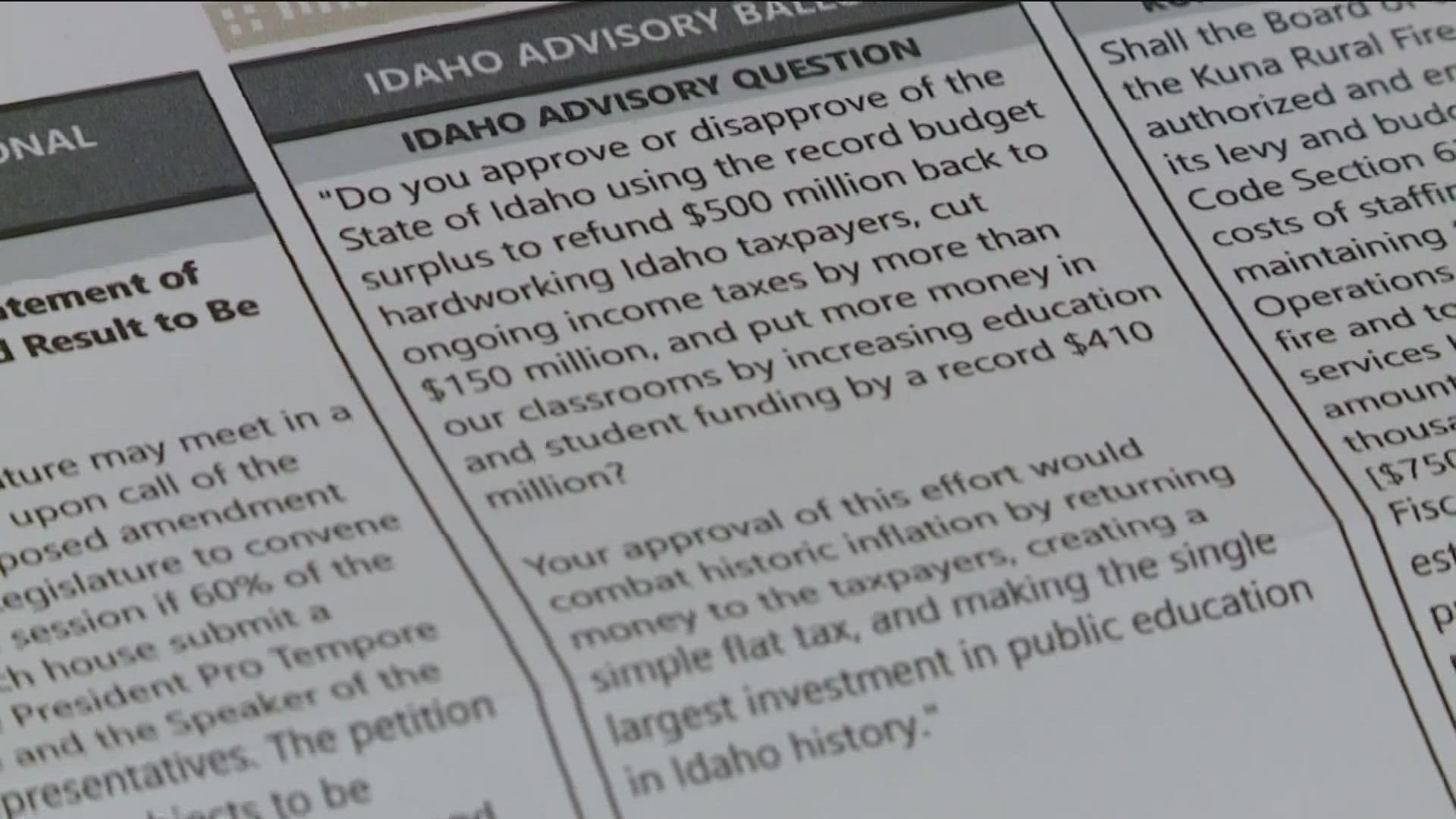IDAHO, USA — Idaho Governor Brad Little called lawmakers back to the statehouse in August for a special legislative session.
The session lasted one day - Sept. 1 - after lawmakers quickly passed House Bill 1. The legislation created $500 million in tax rebates, lowered the state's flat income tax rate to 5.8% and pushed $410 million toward public education.
There was a provision in the bill to place an advisory vote on the 2022 general election ballot. The bill states the provision is a tool for Idaho's Legislature to be responsive to what people want.
Absentee ballot voters are now getting their first look at the advisory question upon receiving their ballot:
"Do you approve or disapprove of the State of Idaho using the record budget surplus to refund $500 million back to hardworking Idaho taxpayers, cut ongoing income taxes by more than $150 million, and put more money in our classrooms by increasing education and student funding by a record $410 million? Your approval of this effort would combat historic inflation by returning money to taxpayers, creating a simple flat tax, and making the single largest investment in public education in Idaho history," the advisory question reads.
The advisory vote is non-binding, meaning it changes no laws or statutes. However, the question's language is leading, according to many Idahoans online.
"It's very guiding language and it doesn't have any part to play on a ballot," north Idaho resident Aaron Reed said. "Give us the cold hard facts, don't use leading language."
Boise State Associate Political Science Professor Jeff Lyons agrees.
"I will say that's not how I would write a question if I was doing a survey and wanted to know what the public thought about this," Lyons said "The language basically gives the positives or the upsides to the tax cuts and the investments being made. It doesn't discuss any alternatives or downsides. Because of that, you could definitely say it's leading the respondent - or in this case the voters - to say they support it."
Due to the way the question is worded, it is possible that lawmakers were not primarily interested in gauging the public opinion, according to Lyons. Rather, the question's response data will be used by lawmakers who were in favor of the legislation to suggest the people of Idaho are in strong support of their work.
"The way the question is worded, is probably going to overstate support since it's worded in a favorable fashion," Lyons said. "Politicians and elected officials of all stripes like to present their work in the most favorable light possible. This is one way of doing that."
Join 'The 208' conversation:
- Text us at (208) 321-5614
- E-mail us at the208@ktvb.com
- Join our The 208 Facebook group: https://www.facebook.com/groups/the208KTVB/
- Follow us on Twitter: @the208KTVB or tweet #the208 and #SoIdaho
- Follow us on Instagram: @the208KTVB
- Bookmark our landing page: /the-208
- Still reading this list? We're on YouTube, too:

